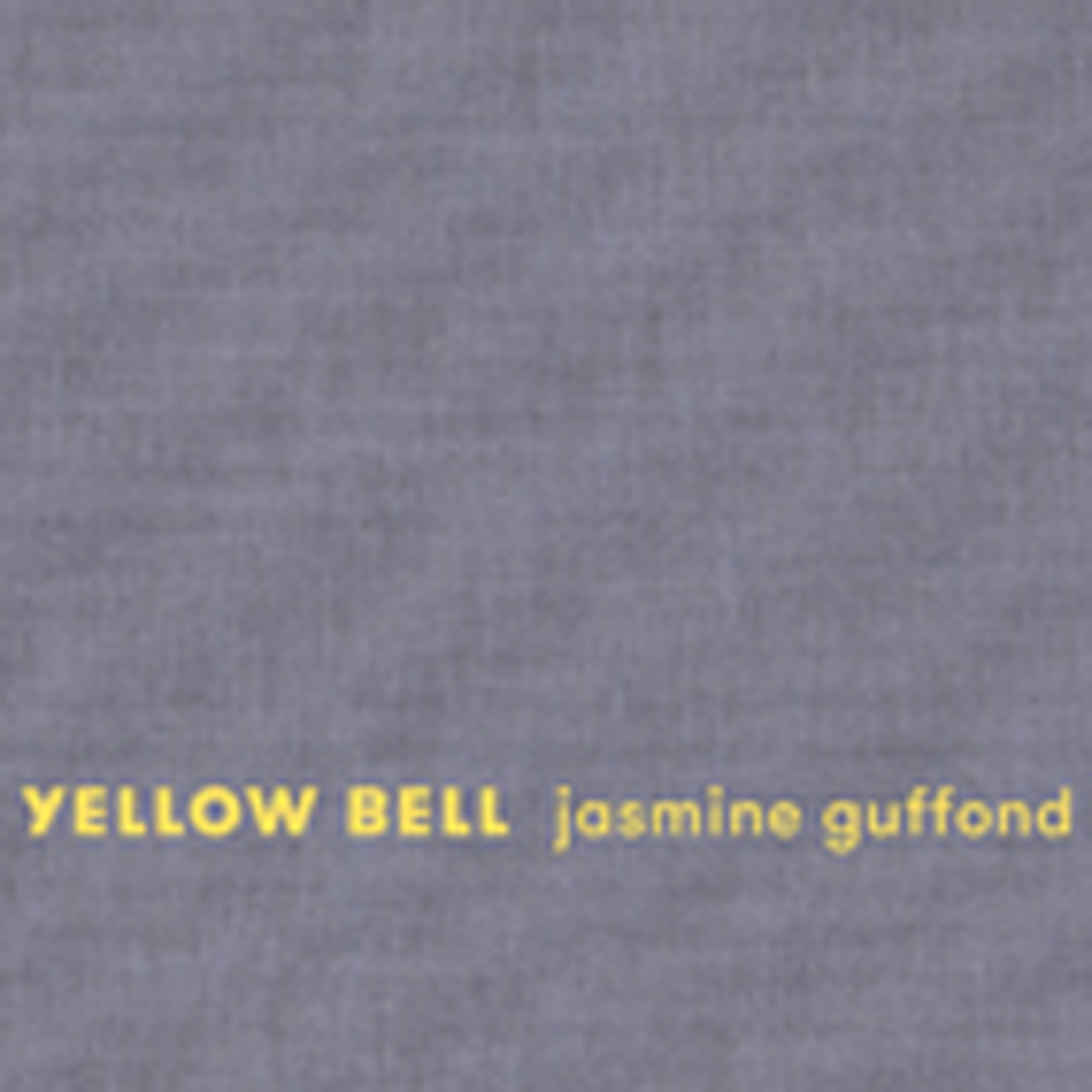 Jasmine Guffond’s reinvention under her given name appeared a few months ago amidst a surprising amount of buzz and favorable comparisons to artists like Grouper and early Julia Holter, which is somewhat surprising for an artist who is already this deep into her career.  I suppose those Grouper comparisons will certainly grab people's attention and I accept that Liz Harris is a decent reference point in some respects, but Jasmine's not-quite fully formed aesthetic sounds like it is mostly her own to me (or is at least amorphous enough to make her influences largely irrelevant).  At its core, Yellow Bell is very much a warm and lush drone album, but its appeal lies in how tender, human, and unconventional Guffond can be within those confines.  While not quite a start-to-finish triumph, the bulk of Yellow Bell is indeed quite good or even sublimely beautiful.  The buzz was not misplaced.
Jasmine Guffond’s reinvention under her given name appeared a few months ago amidst a surprising amount of buzz and favorable comparisons to artists like Grouper and early Julia Holter, which is somewhat surprising for an artist who is already this deep into her career.  I suppose those Grouper comparisons will certainly grab people's attention and I accept that Liz Harris is a decent reference point in some respects, but Jasmine's not-quite fully formed aesthetic sounds like it is mostly her own to me (or is at least amorphous enough to make her influences largely irrelevant).  At its core, Yellow Bell is very much a warm and lush drone album, but its appeal lies in how tender, human, and unconventional Guffond can be within those confines.  While not quite a start-to-finish triumph, the bulk of Yellow Bell is indeed quite good or even sublimely beautiful.  The buzz was not misplaced.
Guffond, an Australian currently living in Berlin, has been making unusual music for roughly two decades, which makes me puzzled as to how I have avoided encountering her work until now.  I went back and investigated her previous Minit and Jasmina Maschina projects and enjoyed them, so maybe the lesson here is that I need to pay closer attention to what Staubgold is releasing in the future.  In any case, Yellow Bell is a stylistic break from all that preceded it, which explains the new label and the name change.  The amusing irony here is that Guffond is actually stepping away from vocals and guitars, yet now she gets pegged with the Grouper comparisons.  In a general sense, Yellow Bell certainly has a Harris-esque mood of bleary mystery at times, but it mostly just seems like an atypically inventive drone album to me.  The catch is just that the album’s single most memorable moment is the crescendo in "Elephant" where Guffond’s achingly melancholy, reverb-swathed vocals unexpectedly emerge to supremely Grouper-esque effect.
Most of Yellow Bell’s other high points, however, come from either Guffond's unusual aesthetic choices or her use of field recordings.  In the aforementioned "Elephant," for example, Jasmine’s distant, wordless Siren-esque vocals emerge from a warmly quivering synth bed beset by layers of crackling found sounds,  soon disappearing entirely to be replaced by a heavy metallic shimmer and subterranean throbs.Although the vocals eventually return for the haunting refrain, the bulk of the piece’s 10-minute trajectory works so well primarily because of Jasmine’s intuitive and nuanced talent for dynamics, textures, and melody.  Jasmine's ability to manipulate density and seamlessly chain together disparate passages is extremely impressive.  It is hard not to think of liquid when listening to Yellow Bell, as its defining characteristic is most definitely its fluidity and ability to ebb and flow from one motif into another.
Another highlight is the shuddering, pulsing, and dreamy "Core Notions," which is kind of a production tour de force: not much changes structurally or melodically over the course of its six minutes, but Guffond juggles the various layers so masterfully that it feels like the piece is gradually being torn apart to reveal a harsher, more menacing interloper.  "Useful Knowledge" begins in similarly blissed-out and hallucinatory fashion, but then a sultry, shuffling pulse transforms it into something that would be right at home in a creepy seduction scene in Twin Peaks...before it seamlessly winds up in a very different place altogether.  Another piece, the double-entendre-friendly "Lisa’s Opening," is even more unusual, gradually shifting from something resembling sci-fi chamber music into a bittersweet reverie amidst ambient chatter (presumably from an art opening) before ultimately resolving into a ghostly, barely-there song.
Yellow Bell concludes with another epic, the complexly layered 10-minute "RR Variations," which explores another new direction that lies somewhere between analog synth drone and Reich-ian obsessive repetition.  It is probably the most ambitious, unusual, and labor-intensive piece on the album, as it sounds like there is an entire orchestra being chopped and sped-up by the end, yet it lacks the vulnerability and humanity that make the rest of Yellow Bell so great.  I suppose that gets at what is so unique and fascinating about this album: its flaws and its triumphs are nearly impossible to come to a firm opinion on.  When Yellow Bell seems derivative, it usually comes about in a fresh and memorable way; when it plunges into more abstract, comparatively untraveled territory, it sacrifices some of its character and ability to connect.  The reason it all works, of course, is because Guffond is able to so organically drift between those poles and always sounds great doing it.  That places Jasmine in a curious no-man’s-land, as I am very hard-pressed to nail down Yellow Bell’s aesthetic, but I was certainly very happy to drift around to wherever she decided to go.
 
Read More

